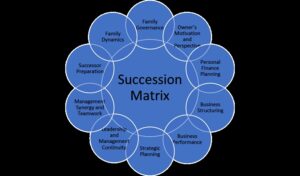By Mark Oloya Nekemiah
The origin of family businesses dates back to the medieval period e.g. guilds, artisan workshops, and agrarian societies.
Last year, 2024, South Sudan hosted the 24th East Africa Community (EAC) business show for Micro, Small and Medium Enterprises (MSMEs) inclusive of two other business shows for local entrepreneurs. The first business show, which started from 24 October to 05 November 2024 brought together persons from the East African region namely: Uganda, Kenya, Rwanda, Burundi, Democratic Republic of Congo, Tanzania, Somalia and South Sudan. This was followed by the second and third business shows for the local business practitioners and they showcased their different businesses, which reflected their diverse ideas, missions, values and objectives in service of the various clients or humanity.
For Mohammed Ali, the legendary boxer said that “the service to others is the rent you pay for your room here on earth.” Therefore, as the entrepreneurs in the East African region render their services to others and operating in complex local, regional and international socio-economic and political contexts, the big question is, how long will some of the businesses exists? For the longest business existed for 1,444 years (40 generations) and is still operating in Japan.
The Opportunities Family Businesses Bring
As things are created twice (first in the mind and then outside), the external creation of family businesses come with a lot of opportunities. For instance, employment opportunities for family members and the entire society or community. Research in USA on family businesses suggests the family businesses account for 64 percent of U.S. gross domestic product; generate 62 percent of the country’s employment, and account for 78 percent of all new job creation. Additionally, family-owned businesses are the backbone of the American economy. Further, studies have shown about 35 percent of Fortune 500 companies are family-controlled and represent the full spectrum of American companies from small business to major corporations. Similarly, according to Egyptian Centre for Economic studies, at least 50-60% of Egyptian businesses are family owned. They contribute to around 80% to the national income; 75% of the private sector activity and 70% of the labor force. Robert Anderson suggests that “Family businesses are built on shared dreams, where every setback is a chance to grow stronger together.”
Challenges in Running Family Businesses
Besides the opportunities that come with family-owned businesses, there some essential challenges in running family business. Some of the issues in operating family businesses are as follows: succession planning – transitioning from one leadership to the next is a delicate process for which most family businesses are not prepared. Conflict resolution – poor management of disagreements within the family sometime have negative efforts of the performance of family businesses and subsequent transition to the next generation. Professionalization – is also one of the challenges most family businesses have. Offsprings are not prepared enough to take up future tasks when their parents have become old; and finally external pressures e.g. globalization, economic or inflations, technological advancement, changing consumer preferences, and pandemics e.g. Covid 19, M-Pork pose challenges towards the survival of family businesses.
Decline of Family Businesses
Although family businesses contribute positively towards the growth of the economy, all family businesses are exposed to both internal and external challenges, which sometimes wiped out some of the family businesses around the world. Research shows that “more than 30% of all family-owned businesses make the transition into the second generation. 12% will still be viable into the third generation, with only 3% of all family businesses operating at the fourth-generation level and beyond.” For the longest family business that existed and still existing is Kongo Gumi, a construction company in Osaka, Japan. It was founded by Prince Shotoku in 578 and lasted for 40 generations and still moving on with provision of construction service for the Japanese people.
Succession Matrix and Core Principles
The survival of any family business beyond generation one (founder) is dependent on the ability of the founder to place in place a solid succession plan/matrix for transferring and sustaining family generational wealth. Succession planning is, therefore, a process and strategy for replacement planning or passing on leadership roles. It is used to identify and develop new, potential leaders who can move into leadership roles when they become vacant. From a business perspective, succession planning entails developing internal people with managing or leadership potential to fill key hierarchical positions in the company. It is a process of identifying critical roles in a company and the core skills associated with those roles, and then identifying possible internal candidates to assume those roles when they become vacant. Succession planning also applies to small and family businesses (including farms and agriculture) where it is the process used to transition the ownership and management of a business to the next generation.

Succession planning contains succession matrix with 10 key factors (as shown in the figure above) for successful transition to the next generations. These factors are namely: family dynamics, family governance, owner’s motivation and perspective, personal finance planning, business structuring, business performance, strategic planning, leadership and management continuity, management synergy and teamwork; and successor’s preparation.
Besides putting in a succession plan for smooth transition to the next generation, family businesses need to adhere to the following five core principles: communication and voice; clarity, consistency, change-ability (charter, person) and culture of fairness (sincerity) amongst and between members of the family running the business.
The Roles of the Board in Family Businesses
Besides the principles, for family businesses to ensure continuity, there is a need for an external support – the board especially for medium and big enterprises. The roles of the properly composed and led boards are a great vehicle to grow the value and resilience of family business or companies. For boards stabilize and steer the business, connect the owners’ values and goals to strategic decisions, and provide oversight and guidance to management. For instance, Warren Buffett (FY2011), said that “the primary job of a Board of Directors is to see that the right people are running the business and to be sure that the next generation of leaders is identified and ready to take over tomorrow.” Additionally, and more specifically, high-functioning boards have the following roles: protect and balance the interests of the owners and the company; oversee the entity (i.e. from a fiduciary and legal perspective); advise on strategic decisions; ensure the company is future-ready and discuss, probe, and solve problems of critical strategic importance e.g. succession planning. Conversely, when boards’ performance is low, it is often due to having the wrong board composition. Therefore, choosing board members is one of the most significant powers that owners have in a family business. But many owners don’t exercise this responsibility strategically.
Finally, as doing business is relatively new for most of people e.g. South Sudanese and the East Africa region, especially women entrepreneurs and youths, the survival of most of the businesses that showed up during the three business exhibitions, from the first generation (Founder) to the second, third generation and beyond; therefore, requires aggressive awareness about the importance of succession planning and matrix; training and provision of technical support to some of the family businesses that are now grappling with succession planning or problems. For Howard Stevenson remarks that, in running family businesses, “the ultimate test of a family’s values and character is how well it prepares the next generation to take over.” As “the Only Thing That Is Constant Is Change” (Heraclitus), the main reason for preparing the next generation to take over is because business Founders do get old and die. Hence, the importance of business continuity through early preparations for succession by the next generation using a succession matrix as a guide.
The Writer is a Consultant, Social Scientist, Human Resources Development/Management Specialist, Trainer, Educator and Entrepreneur. He can be reached on ihrdcentre@gmail.com




